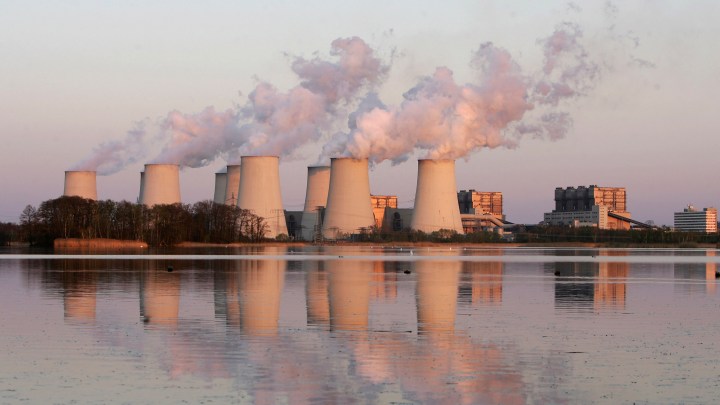
British business seeks to cash in on carbon

For many years, some climate scientists have advocated carbon capture as a weapon in the fight against global warming. The idea is simple: catch the carbon dioxide (CO2) emitted by a power station or factory before it gets into the atmosphere, then bury it in disused mines or defunct oil wells.
There’s a snag: storing the carbon costs money. But a host of business people — many of them in the U.K.— are trying to change that and actually make money off of the captured carbon.
Instead of interring the troublesome gas, they are trying to turn it into a useful and valuable commodity, without releasing it and causing further environmental damage.
Peter Hammond, chief technology officer of environmental technology firm CCM Technologies, is one of these carbon entrepreneurs. In a small factory near Swindon, 80 miles west of London, Hammond and his colleagues are engaged in what has been called “modern alchemy.”

In medieval times, people attempted to transform base metals into gold. Hammond’s company is using a potentially harmful material to make one of the most productive.
“We’re making fertilizer,” he told Marketplace. “We use the CO2, which we turn into a solid, to essentially glue together nutrient packages so that they act as conventional fertilizers for agricultural production.”
Hammond’s company collects the CO2 for free, using capture devices placed inside power station chimneys. His fertilizer, he claims, is more effective than conventional varieties and can be cheaper.
“In the right circumstances, carbon dioxide can be a very useful raw material. It’s not always a demon,” he said.
His process delays and reduces the amount of the captured gas that gets into the atmosphere. He says the factory has “a nil carbon balance,” meaning that it does not emit any additional carbon. This contrasts starkly with many conventional fertilizer manufacturers.
One hundred and sixty miles north of Swindon, in the town of Runcorn, another carbon alchemist, Leigh Taylor of Econic Technologies, is at work in a small industrial facility. Taylor says the fundamental position taken by his company — a start-up spun out from Imperial College London — is that carbon is an opportunity rather than a threat.

“We’re using captured CO2 to make polymers that are used in the manufacture of a vast array of everyday household products: housing insulation, mattress material, car seating and other soft furnishings for cars, skateboard wheels, glues and sealants. We make the materials that go into manufacturing these, utilizing CO2,” Taylor said.
And the impact on climate change could be significant. Within five or 10 years, Taylor says, Econic’s polymers could be trapping 3.5 million tons of carbon dioxide a year — the equivalent of taking about 2 million cars off of U.K. roads.
Another British company, Carbon-8, is mixing CO2 with incinerator ash to make blocks for the construction industry. The company’s website claims that its new factory in Leeds will trap as much of the gas every year as 200,000 trees can — and make money in the process.
This is much better than burying the CO2, according to Dr. Mohammed Imbabi of Carbon Capture Machine, a technology company based at the University of Aberdeen in Scotland.
“Why would you bury something that can generate revenue and wealth and, ultimately, industries and employment?” Imbabi asked.
The carbon entrepreneurs are driven by a desire to combat climate change. But profit, Imbabi noted, is also an important motivation.
“We have a technology that can actually convert CO2 into useful, high-value products. We convert carbon into money,” he said. “This isn’t alchemy,” Imbabi added. “It’s science, sound engineering and economics.”
There’s a lot happening in the world. Through it all, Marketplace is here for you.
You rely on Marketplace to break down the world’s events and tell you how it affects you in a fact-based, approachable way. We rely on your financial support to keep making that possible.
Your donation today powers the independent journalism that you rely on. For just $5/month, you can help sustain Marketplace so we can keep reporting on the things that matter to you.


















